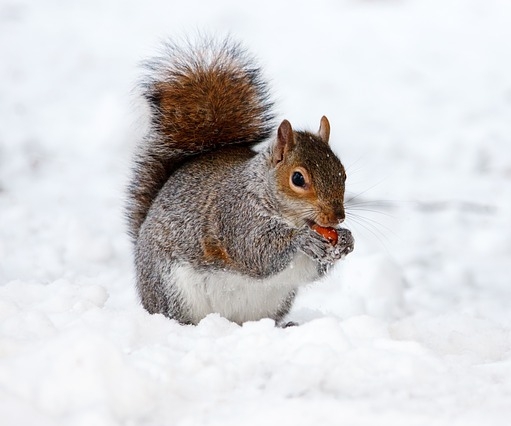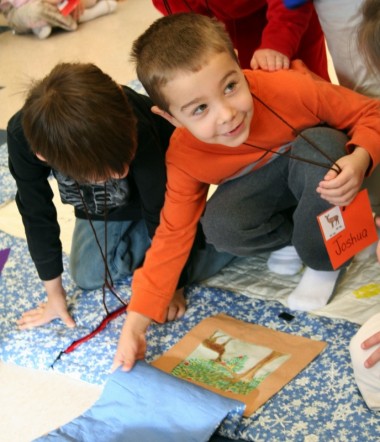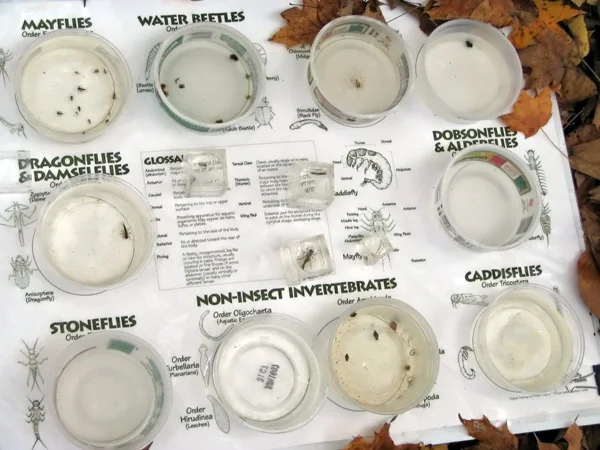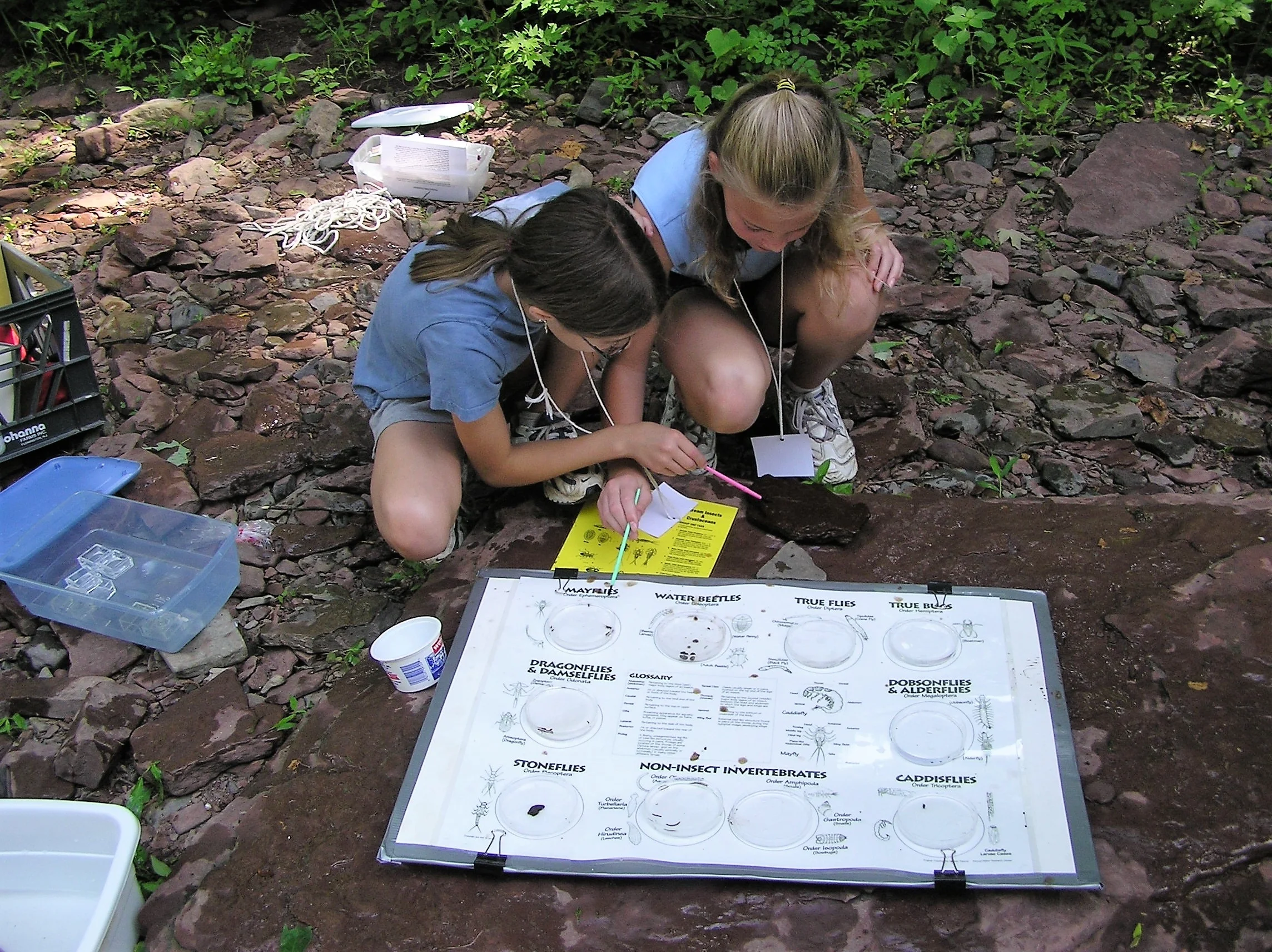Winter Wonders (Pre-School)
"Winter Wonders," an active storytime adventure, weaves carefully chosen children's literature with a variety of movement activities, games, and songs, concluding with a simple craft for everyone.
* An hour long program for classes of up to 24 children.
Fee:
* $7.50 per student ($75 minimum) when held at the Conservancy
* $8.50 per student ($80 minimum fee per class) $10 travel & transportation fee per class when held at your Classroom
Contact: Reservations can be made by contacting education department at education@perkiomenwatershed.org
Winter Secrets... About Animals In Winter (Kindergarten)
"Winter Secrets..." reveals winter survival secrets of local animals and is based on a gentle legend about "Mother Nature.” Students will be involved in poetry, song, movement and... a surprise ending! Pre- and post-trip activities are included.
* An hour long program for classes of up to 24 children
Fee:
* $7.50 per student ($75 minimum) when held at the Conservancy
* $8.50 per student ($80 minimum fee per class) $10 travel & transportation fee per class when held at your Classroom
Contact: Reservations can be made by contacting education department at education@perkiomenwatershed.org
What the teachers are saying:
The Conservancy teachers were extraordinarily gentle, enthusiastic and patient. The children's feedback and parental feedback was strongly positive. It was a must for this age!
PDE Academic Standards covered in this lesson include:
4.1.PK.A - Identify living and nonliving things in the immediate and surrounding environment.
4.1.PK.D - Identify basic needs of living things.
4.1.PK.E - Identify the change of seasons in the environment.
4.1.PK.F - • Distinguish between scientific fact and opinion. • Ask questions about objects, organisms and events. • Understand that all scientific investigations involve asking and answering questions and comparing the answer with what is already known. • Plan and conduct a simple investigation and understand that different questions require different kinds of investigations. • Use simple equipment (tools and other technologies) to gather data and understand that this allows scientists to collect more information than relying only on their senses to gather information. • Use data/evidence to construct explanations and understand that scientists develop explanations based on their evidence and compare them with their current scientific knowledge. • Communicate procedures and explanations giving priority to evidence and understanding that scientists make their results public, describe their investigations so they can be reproduced and review and ask questions about the work of other scientists.
4.4.PK.C - Recognize that plants and animals grow and change.
3.1.PK.A1 - Recognize the difference between living and non-living things.
3.1.PK.A9 - • Ask questions about objects, organisms, and events. • Participate in simple investigations to answer a question or to test a prediction. • Use the five senses and simple equipment to gather data.
AL.1.K.C1 - Engage in elaborate, interactive play sequences that include acting out roles and negotiating play themes.
4.1.K.A - Identify the similarities and differences of living and non-living things within the immediate and surrounding environment.
4.1.K.D - Observe and describe what happens to living things when needs are met.
4.1.K.E - Identify how the changes of seasons affect their local environment.
4.1.K.F - • Distinguish between scientific fact and opinion. • Ask questions about objects, organisms and events. • Understand that all scientific investigations involve asking and answering questions and comparing the answer with what is already known. • Plan and conduct a simple investigation and understand that different questions require different kinds of investigations. • Use simple equipment (tools and other technologies) to gather data and understand that this allows scientists to collect more information than relying only on their senses to gather information. • Use data/evidence to construct explanations and understand that scientists develop explanations based on their evidence and compare them with their current scientific knowledge. • Communicate procedures and explanations giving priority to evidence and understanding that scientists make their results public, describe their investigations so they can be reproduced and review and ask questions about the work of other scientists.
4.4.K.C - Observe and describe stages of life cycles for plants and animals.
3.1.K.A1 - Identify the similarities and differences of living and non-living things.
3.1.K.C2 - Describe changes animals and plants undergo throughout the seasons.







